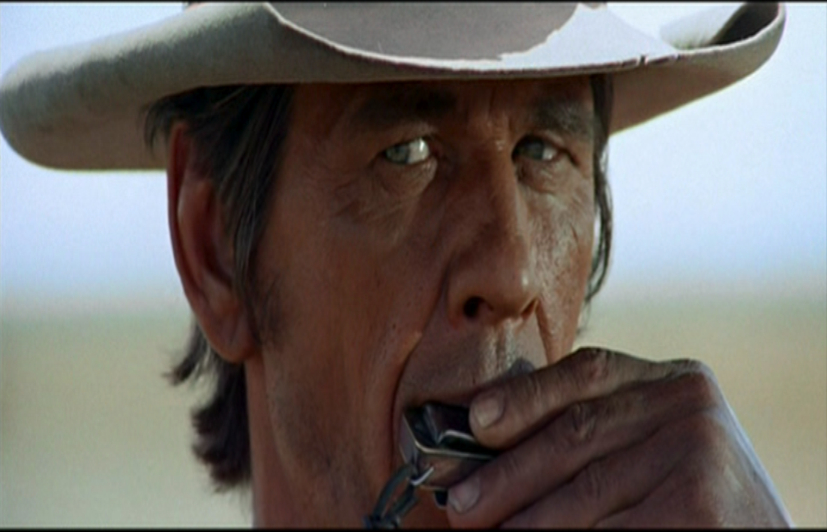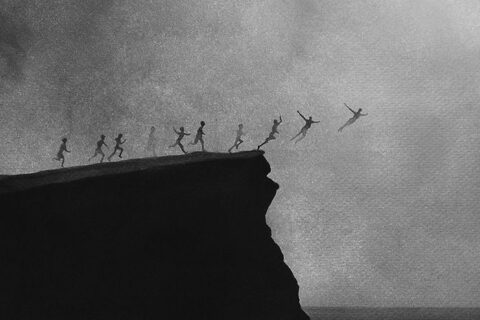As time goes on, it becomes more and more apparent that Samuel T. Francis really was one of the great theorists of power in the 20th century. His writings offer an invaluable understanding on how Heritage America lost power so quickly, and so decisively. His observations regarding the defeat of Heritage America, the ramifications of this loss, and what the Right must do in response are his most important insights. For Francis, the Right must come to terms with one simple and stark fact – it lost, and the Left now controls the levers of power. Although this may appear very simple and common sense today, it was not the case when Francis made those points back in the 1990s.
Considering how not very long ago it was, but back in the early/mid 1990s, the Right had, at least on the surface, good reason for optimism. Imagine being a conservative intellectual in 1995? The great enemy, the Soviet Union, is now gone, along with the entirety of its European empire. China, North Korea, and Cuba all remained, but it was considered only a matter of time before communism fell there, too. Cuba, with its large conservative diaspora waiting to take their nation back, was considered particularly ripe for an anti-communist revolution. It was taken as a truism, at the time, that the Casto regime would not last long after the man himself, and maybe not even that long.
Meanwhile, the home front offered reason for optimism, as well. Republicans had won five of the past seven elections from 1968 to 1992. And, none of these Republican victories had been close. In four of these victories, the Democrats had been restricted to ten or fewer states. In two of them, the Democrat won only a single state. In one, the Democrat came within 4,000 votes away from losing all 50 states. Sure, there had been the 1976 election, and most recently 1992, but even those were not all that bleak. The 1976 election was between a moderate Yankee Republican and a Dixian Democrat, who was able to distance himself from the cultural revolutionaries of the 1960s. It also happened right after the most important political scandal in United States history, and it was still close. Likewise, 1992 could be written off as a fluke. A recession hit at exactly the worst time. Ross Perot split the conservative vote. Bill Clinton’s 43% would have translated into a landslide defeat in almost any other election. Even here, there was reason for optimism. Pat Buchanan’s insurgent run in 1992 proved there was not an insignificant appetite for a figure more rightwing than Reagan. Not even 20 years earlier, a Reagan presidency could be treated as a joke. Now, a popular figure could be well to Reagan’s right. The 1994 midterms created even more hope. It really looked like the country was going to decisively reject the legacy of the 1960s and the radical leftwing movements of the era.
However, Francis knew better. He knew that, despite the surface level victories the Right had supposedly achieved in the past 30 or so years, it was really just smoke and mirrors hiding far darker undercurrents. The Left was now in control of the major levers of society. This was most pronounced in academia, but increasingly corporations were moving leftward, too. The demographic shift unleashed by the Immigration Act of 1965 was now impacting the electorate. The professional managerial class, which Francis, as a disciple of James Burnham, saw as the actual ruling class, was moving evermore to the Left. Meanwhile, the Right was giving up an ever-increasing amount of ground.
While the Right of the 1950s and 1960s was willing to discuss racial issues, even if such issues were not a driving force of the movement, this was not the case in the 1990s; such discussions had been relegated to the margins. For decades, conservatives understood what immigration would mean to the structure of the country. But by the 1990s, even this was being pushed aside. Conservatism, Inc. decided that being in the good graces of the Left and keeping corporate profit margins healthy was more important than the historical core of the nation. Francis’ solution to all of this was for the Right to actually ditch conservatism. The Left was now in power and “conservatism,” as it has been historically understood as a defensive position, was no longer workable. The Right must now take on an insurgency mindset. Francis was right in 1994, and he’s still correct now.
Of all the elements that make up the Dissident Right, I think Dixian Nationalism is best suited to take on this mentality. The very bedrock of Dixian Nationalism is that Dixie is an occupied nation, much as Ireland was under the British or Poland under the Soviets. Because of this, we are the most capable to observe the United States as a political and cultural adversary. In the United Kingdom of 1915, each of the its parts – England, Wales, Scotland, and Ireland – were theoretically equal, but Irish Nationalists knew that was a lie. In reality, England ran the show and Ireland was, if not legally than practically, reduced to colonial status. So is the case of Dixie. Sure, theoretically each state is equal, but the various ruling apparatus of the Yankee Empire has turned that supposed equality into a joke, the most important of which is the Voting Rights Act of 1965. Elections are federally controlled in all or, at least, parts of our states and even districts can be redrawn at the mere whim of a judge.
The United States is no more our nation than Britian was the nation of the Irish. And, because of that, we can instinctively understand the mentality that must be undertaken. It is only by understanding the position we’re in can we actually win.







West Virginia is a rouge State! God Bless Dixie !
Do you mean “rouge” as in the word for “red” in French?
Or do you mean “rogue”, as in “no longer obedient” ?
It could be “rouge”, as in “a red state”, i.e. “Republican.”
It is really depressing to see people in this circle fall to the left right bull over and over again. The whole early 90s talk about the NWO was NWO for YOU, not for the owners. Since the mid 1800s the entire western world has been a managed farm – pure and simple (obv except NSDAP period).
It was the same during the late Roman republic and during most of the empire, and in most Asiatic empires (I’m not well educated enough in the topic to state absolutes here).
Look here cause it’s too simple (to a degree that the mind tends to miss): begin an experiment, it goes like this:
Throw away the jew TV, jew PC, jew phone.
Wait ten years.
Try to guess the football team (political party) in charge only based upon interactions with other people who conducted the same experiment.
You won’t be able to.
The only factor in any decision being made by the rulers (and parroted, rarely, by their actors) is how much, where and when to steal your assets, freedoms and dignity. Political party has nothing to do with it.
The only way forwards necessitate a total reevaluation of all. A communal system of governance with nominal inter community cooperation can provide the stolen goods and honor back, if the people are willing to sacrifice and are properly modest (sin and culture wise). But the people are the opposite of both, so this is what’s going to happen:
We are living through a stroke (not cancer), a particularly long stroke. Blood is flowing too fast in some places, not at all in others – the only way forwards right now, as we are flailing on the floor semi conscious, is to suffer through it, and hope we retain enough brain function to fight for the privilege of standing up again.
Every day I pray that my assessment is wrong, that something will show me the light. But alss, it is folly. When the 1% of the top 1% who CAN SEE still fall for it, I all but know I am right. Thankfully, more suffering begets a polished, tested survivor – I pray that such men will see to us standing up again, and that they will know better to keep it a social LAW that such knowledge is passed down for eternity, because the worst is not yet to come that we’re probably still at the relative best.